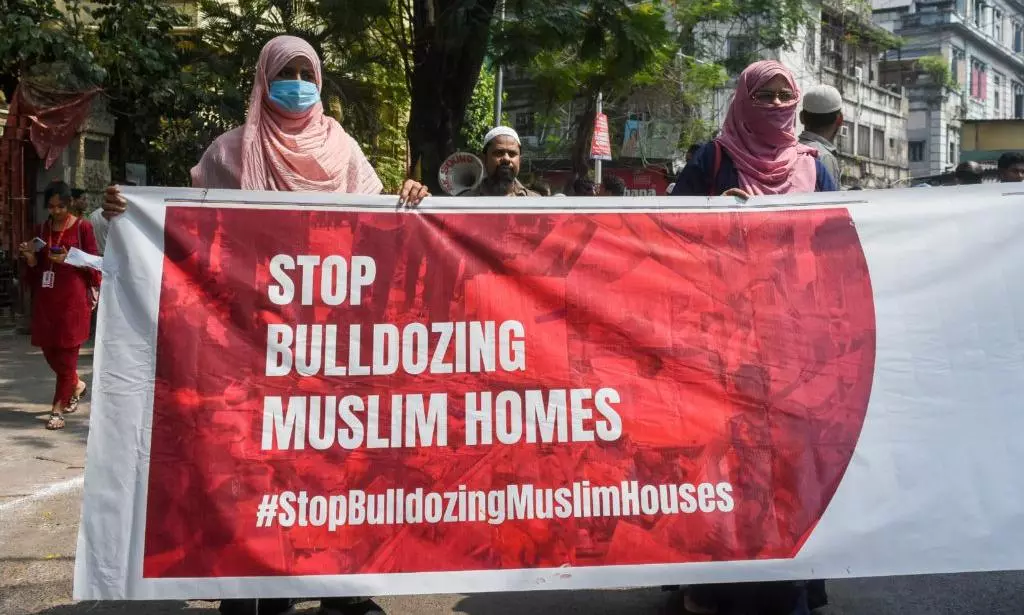
Global reports highlight systematic expulsion of Muslims and denial of voting rights
text_fieldsA report published in The Wire has compiled troubling developments highlighted by international media, experts, and civil society groups, revealing how India’s ruling Bharatiya Janata Party (BJP) and its affiliates have intensified actions that disproportionately target the Muslim community and erode democratic norms.
These reports, dating from July 1 to 31, 2025, detail deportations, disenfranchisement, bulldozing of homes, torture, transnational repression, media suppression, and judicial indifference, all linked to what observers describe as a broader Hindutva-driven agenda.
International media platforms such as Nikkei Asia, Al Jazeera, The Washington Post, and Financial Times have highlighted these concerns in detailed coverage. Nikkei Asia reported on India’s rejection of a binding ruling from the Permanent Court of Arbitration that deemed its unilateral suspension of the Indus Water Treaty with Pakistan illegal, with the move described by analysts as part of a global trend in which powerful states bypass international law.
Al Jazeera focused on a large-scale re-registration drive by India’s Election Commission in Bihar, warning that millions, primarily Muslims, could be disenfranchised under what appears to be a covert implementation of the National Register of Citizens.
The Washington Post reported on mass deportation drives in Assam and Gujarat targeting Muslims identified as illegal immigrants from Bangladesh, with families and activists asserting that many of those deported were Indian citizens.
Reports include the demolition of homes, destruction of identity documents, and instances of forced and violent expulsion across borders. These actions have been justified by national security rhetoric and have received approval from local authorities and courts.
The Financial Times carried a feature on the Rashtriya Swayamsevak Sangh (RSS), tracing its centenary and influence in shaping India’s current political landscape. The report detailed how the RSS has grown into the largest far-right movement globally, with strong ideological control over state institutions, and documented its roots in ideas drawn from European fascism.
A joint investigation by Bellingcat and Alt News documented violent cow vigilante attacks on truck drivers, most of them Muslims, by self-styled “cow protection” groups in northern Indian states. Human Rights Watch stated that such violence has become normalised as part of the BJP’s political narrative. Meanwhile, historian Richard Eaton warned of attempts to erase the Mughal legacy from public memory, calling the move politically motivated and historically inaccurate.
Human Rights Watch also raised alarm over mass expulsions of Bengali Muslims without due process, stating that many of the expelled individuals had later been proven to be Indian citizens and were readmitted.
A separate report by TrialWatch, conducted with Indian and American academic partners, analysed over 400 criminal cases against journalists, finding a pattern of judicial harassment and legal intimidation, especially against those in smaller towns.
International civil society groups and the Indian diaspora have also responded to the ongoing concerns. From screenings of films documenting custodial torture to briefings in the US Capitol calling for India to be labelled a violator of religious freedom, global actors have been raising alarms.
A joint statement by 31 diasporic organisations condemned disappearances and torture of student activists, alleging systematic targeting of Muslims and suppression of dissent.


















